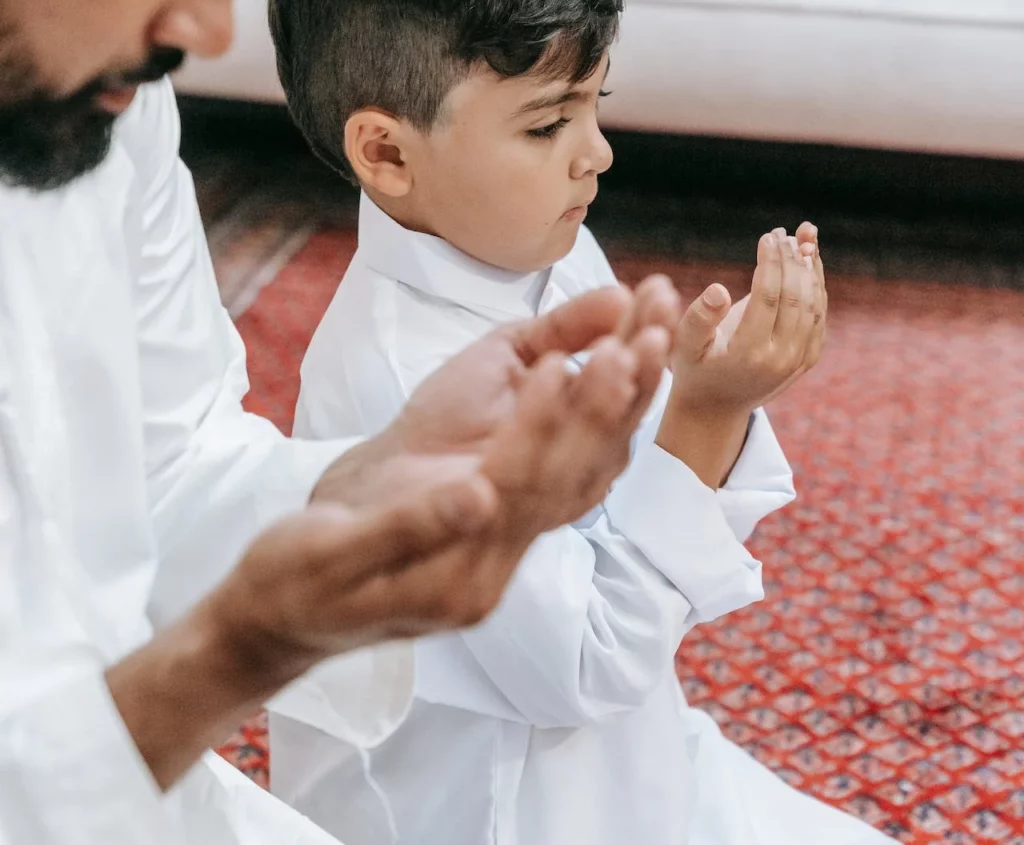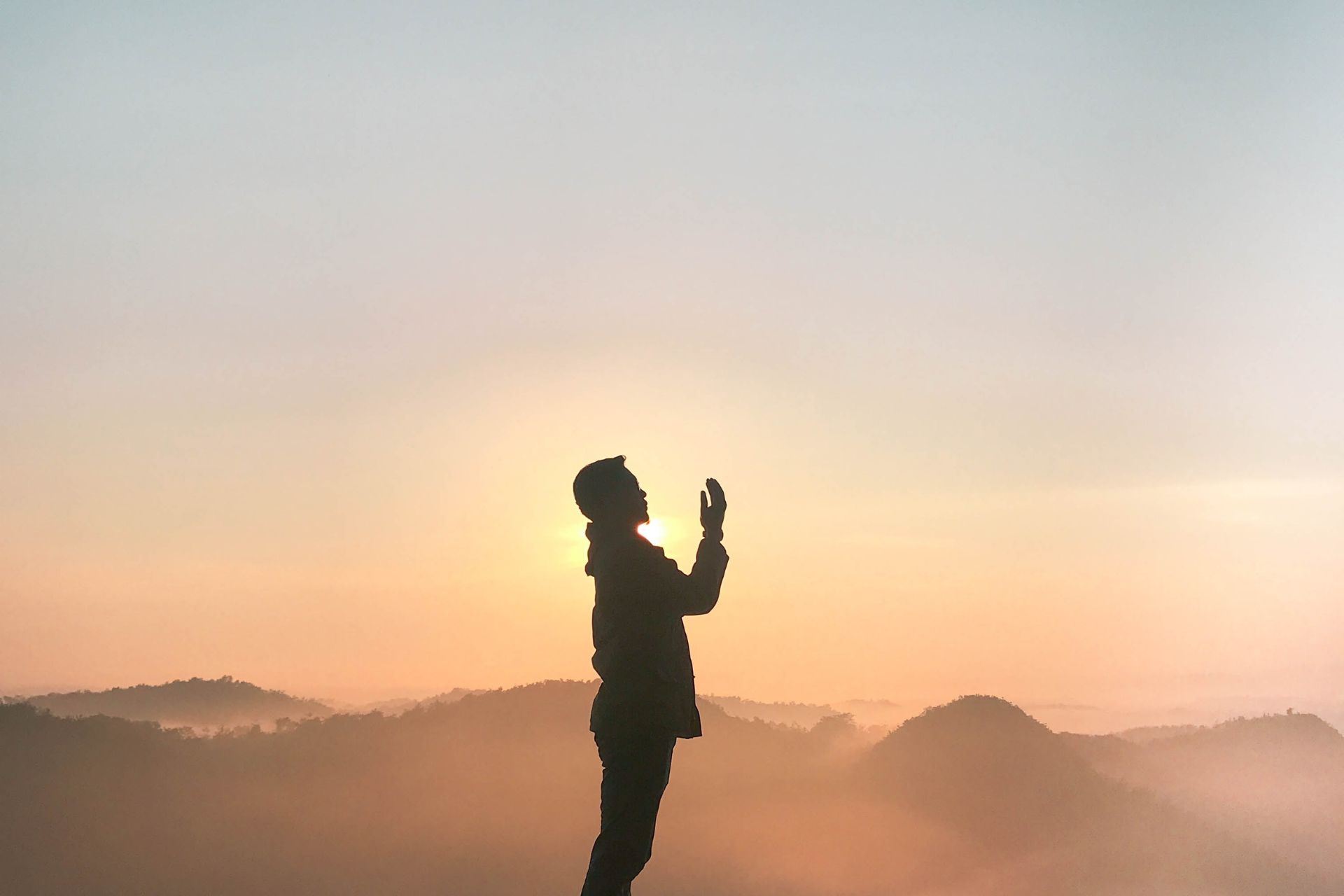Amidst the chaos and unpredictability of the world, finding solace and protection is a universal desire for individuals of all faiths.
For Muslims, reciting a dua (prayer) before leaving the comforts of home has long been believed to offer a spiritual shield, providing both physical and emotional safety.
In this article, we explore the power of the dua for leaving home and its significance in the lives of millions.
This trusted shield, supported by centuries-old teachings, holds immense value in today’s fast-paced and hectic world.
By reciting the dua, Muslims seek the guidance and protection of Allah as they embark on their daily ventures.
By incorporating the practice of reciting the dua into their routines, individuals find a sense of reassurance and connection to their faith.
It serves as a reminder of the divine presence, offering peace of mind and a source of strength to face the challenges that lie outside their homes.
Join us as we delve into the significance of this ancient tradition, exploring its origins, the words of the dua, and the transformative impact it has on the lives of those who practice it faithfully.
The significance of Dua in Islam
Dua, or supplication, plays a central role in Islam. It is an act of reaching out to Allah, seeking His guidance, mercy, and protection.
Muslims believe that Allah is the ultimate source of power and that turning to Him through dua is a means to establish a personal connection and seek His blessings.
Dua is not limited to specific situations; rather, it is a way of life for Muslims. It is a form of worship that can be practiced anytime and anywhere.

The act of dua is seen as an expression of faith and reliance on Allah, acknowledging His authority and seeking His assistance in all matters.
In Islam, dua is considered a powerful tool that can bring about positive change and transform one’s life. It is a means to seek forgiveness, blessings, and protection from harm.
The act of dua is not just about asking for worldly desires; it is also about seeking spiritual growth and strengthening one’s relationship with Allah.
Understanding the concept Dua for Leaving Home in Islam
In Islam, the concept of going out of home is not merely a physical act; it encompasses a broader meaning. It refers to stepping out into the world, engaging with society, and fulfilling one’s responsibilities.
Whether it is going to work, running errands, or attending social gatherings, Muslims are encouraged to approach these activities with a sense of purpose and responsibility.
Going out of home is seen as an opportunity to fulfill one’s obligations and contribute to the betterment of society.
It is a chance to interact with others, build relationships, and make a positive impact. However, it is also a time when individuals are exposed to various challenges and potential dangers.
Recognizing the potential risks and uncertainties that await outside the confines of home, Muslims turn to Allah for protection and guidance. The dua for leaving home is seen as a means to seek Allah’s blessings and safeguard oneself from harm.
The power of dua for protection and guidance
The dua for leaving home holds immense power and significance in the lives of Muslims.
It is recited as a means to seek Allah’s protection and guidance throughout the day. Muslims believe that by reciting this dua, they are placing their trust in Allah and seeking His divine assistance in navigating the challenges and uncertainties of the outside world.
The power of dua lies in its ability to establish a direct connection with Allah. Muslims believe that Allah is all-knowing, all-seeing, and all-powerful.
By reciting the dua, they are acknowledging their dependence on Allah and seeking His mercy and protection.
The dua for leaving home is a reminder for Muslims to remain steadfast in their faith and to seek Allah’s guidance in all their endeavors.
It serves as a source of strength and comfort, reminding them that they are not alone in their journey.
The importance of reciting specific dua for leaving home
In Islam, there are specific duas that are recommended to be recited before leaving home.
These duas are believed to offer protection, blessings, and guidance. Muslims are encouraged to incorporate these duas into their daily routines, ensuring that they start their day with the remembrance of Allah and seeking His assistance.
One of the most commonly recited duas before leaving home is:
“Bismillah, tawakkaltu ‘ala Allah, wala hawla wala quwwata illa billah.”
This dua translates to:
“In the name of Allah, I place my trust in Allah, and there is no power or strength except with Allah.”
By reciting this dua, Muslims affirm their reliance on Allah and acknowledge that all power and strength come from Him alone. It serves as a reminder to seek Allah’s protection and guidance throughout the day.
Steps to perform dua for leaving home
Performing the dua for leaving home is a simple yet powerful act that can have a profound impact on one’s day. Here are the steps to perform the dua:
1. Start by making the intention to recite the dua for leaving home sincerely for the sake of Allah.
2. Begin by saying “Bismillah” (In the name of Allah) to seek Allah’s blessings and protection.
3. Recite the dua: “Bismillah, tawakkaltu ‘ala Allah, wala hawla wala quwwata illa billah.”
4. After reciting the dua, seek Allah’s protection and guidance throughout the day.
5. Conclude by expressing gratitude to Allah for the opportunity to go out and fulfill one’s responsibilities.
By following these steps, Muslims establish a connection with Allah and seek His protection and guidance before stepping out of their homes.
Other Islamic practices for protection when going out of home
In addition to reciting the dua for leaving home, there are other Islamic practices that Muslims can adopt to seek protection when venturing outside.
These practices are rooted in the teachings of Islam and aim to establish a strong connection with Allah, seeking His blessings and guidance.
One such practice is reciting the morning and evening supplications. Muslims are encouraged to recite specific duas upon waking up in the morning and before going to bed at night.
These duas serve as a means to seek Allah’s protection and blessings throughout the day and night.
Another practice is seeking refuge in Allah from specific harms. Muslims are taught to recite specific duas to seek protection from various dangers, such as evil eye, envy, and harm from jinn (supernatural beings).
By seeking refuge in Allah, Muslims acknowledge their vulnerability and seek His divine intervention and protection.
By incorporating these practices into their routines, Muslims establish a strong connection with Allah and seek His guidance and protection in all aspects of their lives.
Incorporating dua into daily routines
To truly benefit from the power of dua, it is essential to incorporate it into one’s daily routine. Muslims are encouraged to make dua a consistent practice, seeking Allah’s guidance, protection, and blessings in all aspects of their lives.
One way to incorporate dua into daily routines is by setting aside specific times for supplication.
This could be in the morning, before leaving home, during breaks, or before going to bed. By establishing a regular dua routine, Muslims create a dedicated time for connecting with Allah and seeking His assistance.
Another way to incorporate dua into daily routines is by making it a habit to recite specific duas for different situations.
Muslims are encouraged to learn and memorize various duas for protection, guidance, forgiveness, and other aspects of life. By reciting these duas regularly, they cultivate a sense of mindfulness and reliance on Allah in all their actions.
In addition to individual dua, Muslims are also encouraged to engage in communal dua, where they gather with fellow believers to supplicate together.
This practice fosters a sense of unity and solidarity among Muslims, as they come together to seek Allah’s blessings and guidance.
Conclusion: Embracing the power of dua for a safe journey
In a world filled with uncertainties and challenges, finding solace and protection is a fundamental human desire. For Muslims, reciting the dua for leaving home offers a spiritual shield, providing both physical and emotional safety.
This centuries-old tradition holds immense value in today’s fast-paced world, offering Muslims a sense of reassurance, connection to their faith, and a source of strength.
By reciting the dua before leaving home, Muslims seek the guidance and protection of Allah, acknowledging their dependence on Him and seeking His blessings throughout the day.
It is a reminder that they are not alone in their journey, and that Allah is their ultimate protector.
Through stories, examples, and personal experiences, the power of dua is evident. Muslims have witnessed the transformative impact of dua in their lives, experiencing Allah’s protection and guidance firsthand.
By incorporating dua into their daily routines and embracing its power, Muslims can navigate the challenges of the outside world with confidence and faith.
In conclusion, the dua for leaving home serves as a trusted shield amidst the chaos of the world.
It is a means to seek Allah’s protection, guidance, and blessings, providing Muslims with the strength and reassurance they need to face the challenges that lie outside their homes.
By embracing the power of dua, Muslims can embark on their daily ventures with confidence, knowing that Allah is always with them, watching over and protecting them.

